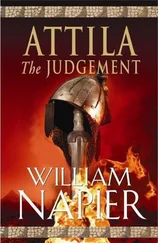William Napier - The Great Siege
Здесь есть возможность читать онлайн «William Napier - The Great Siege» весь текст электронной книги совершенно бесплатно (целиком полную версию без сокращений). В некоторых случаях можно слушать аудио, скачать через торрент в формате fb2 и присутствует краткое содержание. Жанр: Исторические приключения, на английском языке. Описание произведения, (предисловие) а так же отзывы посетителей доступны на портале библиотеки ЛибКат.
- Название:The Great Siege
- Автор:
- Жанр:
- Год:неизвестен
- ISBN:нет данных
- Рейтинг книги:5 / 5. Голосов: 1
-
Избранное:Добавить в избранное
- Отзывы:
-
Ваша оценка:
- 100
- 1
- 2
- 3
- 4
- 5
The Great Siege: краткое содержание, описание и аннотация
Предлагаем к чтению аннотацию, описание, краткое содержание или предисловие (зависит от того, что написал сам автор книги «The Great Siege»). Если вы не нашли необходимую информацию о книге — напишите в комментариях, мы постараемся отыскать её.
The Great Siege — читать онлайн бесплатно полную книгу (весь текст) целиком
Ниже представлен текст книги, разбитый по страницам. Система сохранения места последней прочитанной страницы, позволяет с удобством читать онлайн бесплатно книгу «The Great Siege», без необходимости каждый раз заново искать на чём Вы остановились. Поставьте закладку, и сможете в любой момент перейти на страницу, на которой закончили чтение.
Интервал:
Закладка:
The master was a tall, lean, pockmarked fellow with a wandering gaze and two daggers in his belt. He was taking English broadcloth to Spain, and bringing back oranges and Canary wine. As for an island called Malta, he knew nothing of it.
He eyed Nicholas and Hodge, still in their thin disguise. ‘Your daughters, you say?’
Stanley nodded. ‘Nancy and Matilda.’
The captain sneered. ‘What you runnin’ from?’
‘None of your business.’
He grunted, and told them they’d have to bring their own food and drink, and keep out of his mariners’ way. Other than that, they’d not be molested.
‘And remember to spew at the stern,’ he added.
Nicholas and Hodge spewed all the way to the Scillies and beyond. But as they came in sight of France — Brittany, Stanley said — the sea began to calm, though the west wind was still biting cold. At least they were allowed to jettison their maids’ clothes and return to their own.
Exhausted and thinner than ever, they lay against a coil of tarred rope in the weak sun, wrapped in blankets. Smith came and dumped a bundle on the deck nearby. He took a leather flask from his bag and handed it to them.
‘A swig each,’ he said.
Nicholas unstoppered the cork. It smelt of rotting seaweed.
‘Scurvy grass soaked in ale,’ said Smith. ‘Drink it. It’ll stop you getting the Dutch Disease. Your gums rotting and your teeth falling out.’
Stanley came by whistling.
‘Ah,’ he said. ‘A draught of Dr Smith’s sovereign anti-scorbutical infusion. The foulest concoction yet brewed this side of hell. So how are our young crusaders?’
Nicholas swallowed the liquid morosely. ‘Not dead yet.’
‘Well said, well said.’ Stanley grinned broadly, his ruddy cheeks becoming ruddier daily in the sun and wind, his thick fair hair blown back from his fine broad brow, his whole appearance so powerful and leonine.
‘Strange to remember you’re a monk,’ Nicholas blurted out.
Stanley gazed out to sea.
‘When we were born, this ruffian here and I-’ he indicated Smith, who ignored him — ‘England was a Catholic country still, under Henry. Many younger sons of my family have served the Knights for generations. It is the highest honour.’
‘But — you can never marry.’
Smith grunted. ‘There’s another blessing.’
‘Taking that oath, and swearing fealty unto death, lifts all trouble from the mind. It makes life simple. Such a Brotherhood,’ said Stanley softly. ‘Such a band of brothers.’
Feeling a little more alive, Hodge and Nicholas explored the ship, as far as they were allowed.
It was a thing of wonder, despite the frequent sighting of rats and the smell.
‘You think that smells rosy,’ said one old mariner, ‘try opening the hatches of the bilges. ’Twill knock you senseless into next week.’
He was called Legge, and had but one. There were other mariners like Craven and Bloodisack, who barely spoke to them but to snarl. There were landsmen, apprentice mariners, and lowest of the low, pages: boys of no more than twelve or so, who emptied out the slop buckets, killed the rats, scrubbed the decks, and worked the bilge pump banded to the mainmast, hour by exhausting hour. They hardly dared speak, but looked at Nicholas and Hodge with fraternal pity.
There was Vizard, the blasphemous bosun, who sang obscene songs when not shouting, and Pidhook the helmsman, who treated them with a pinch less contempt than the others. He showed them where he stood on the upper deck called the bridge and swung the whipstaff left and right, turning the great rudder hanging from the sternpost likewise. He showed them his half-hour sandglass, which told the time and reckoned the watches in and out, and his dry compass mounted in a gimbel, a cunning device which kept the compass needle flat to the horizon, no matter which way the ship tilted.
Old crock though she was, the mariners seemed to have a sturdy confidence in the Swan of Avon .
At the end of the first eight-hour watch around dawn, the mariners took their breakfast. One tossed a slab of hardtack to the boys. ‘Here. Test your pearly teeth on that, young sprat.’
Nicholas couldn’t even break into it. They laughed. ‘Ye’ll have to soak it a while yet.’
To their surprise, the master came forward and said a Paternoster and an Ave Maria before his men were allowed to eat.
‘Is this not a Protestant ship?’ said Stanley evenly.
The master said in his gravel voice, and with a distant stare out to sea, ‘For the Bishop of Rome and the Church of Italy I care not. And this newfangled Church of England makes my head ache, since I don’t see how Christ could have founded such a church when he never came ashore on English soil.’
‘Ah,’ said Stanley, ‘the pragmatical English mind.’
‘And he lived and preached before England was even a kingdom, I heard tell, so how can he have appointed the Queen’s forefathers as head of such a church?’
‘A theologian ship’s master,’ said Stanley delightedly. ‘And preaching what sounds like Popery!’
‘Popes and Protestants,’ said the master in a flat, bored tone and a wave of his hand. ‘Such tangled arguments belong on land. We’re not on land, we’re at sea, and the law is different here. I decorate my ship and make my prayers as I see fit, and I will pray to God and his Holy Mother under any name I know, if he’ll send us clear weather and plain sailing. When a man’s fifty miles out in the Bay of Biscay, that’s his usual religion.’
10
Istanbul: Winter 1564 — Spring 1565
All that winter Istanbul had been in a ferment, devoted to the coming war.
From the forests of the Crimea came timber, from the high plains of Anatolia came hemp and flax. Out of the vast Imperial workshops came coils of rope and bales of sailcloth, while in the naval dockyards, they said a new war galley was being built every week. Saltpetre for gunpowder came in from Belgrade, sulphur from Lake Van, copper from the mines of Kastamonu, and church bells throughout the conquered Balkans were melted down, turning the Christian’s own iron and bronze against them.
Day and night there was the ring of hammer on anvil, the steady tapping of shipwrights and the hot stink of burning pitch poured over the caulking ropes, tamped down into the seams of the wooden hulls to make them watertight. Oxen drew carts bringing vats of tallow straight from the slaughterhouses, steering them carefully down to the dry docks where they would be used to grease the galleys’ hulls, making them slip still faster over the waves of the White Sea.
Day and night, too, the great forges of the Ottoman arsenals on the Bosphorus glowed red, while within, shovelling charcoal into hungry cast-iron mouths, super-heated by giant bellows, the faces of the slaves dripped with sweat. The bellows roared, oil burned, the winter sky was filled with smoke, and at night the very moon and stars were obscured. Greek fishermen along the shore muttered among themselves, and clutched the evil eye amulets around their brawny necks, saying the red glow of the Sultan’s furnaces was like the fires of hell.
Overseeing the frenzy of activity in the arsenals from a high walkway was a figure in a plain black robe, hook-nosed, deep-set eyes missing not one detail. From the huge casts, monstrous cannon of solid bronze emerged, each one requiring a team of forty or fifty slaves to move on iron axles and wheels. One basilisk, Ghadb-al Lah — the Anger of Allah — required its own galley. The destructive power of these monsters when unleashed would be unimaginable. They could hurl balls of marble or iron in excess of two hundred pounds. The roar would deafen any nearby, and their effect on walls of mere stone would be devastating.
Читать дальшеИнтервал:
Закладка:
Похожие книги на «The Great Siege»
Представляем Вашему вниманию похожие книги на «The Great Siege» списком для выбора. Мы отобрали схожую по названию и смыслу литературу в надежде предоставить читателям больше вариантов отыскать новые, интересные, ещё непрочитанные произведения.
Обсуждение, отзывы о книге «The Great Siege» и просто собственные мнения читателей. Оставьте ваши комментарии, напишите, что Вы думаете о произведении, его смысле или главных героях. Укажите что конкретно понравилось, а что нет, и почему Вы так считаете.












